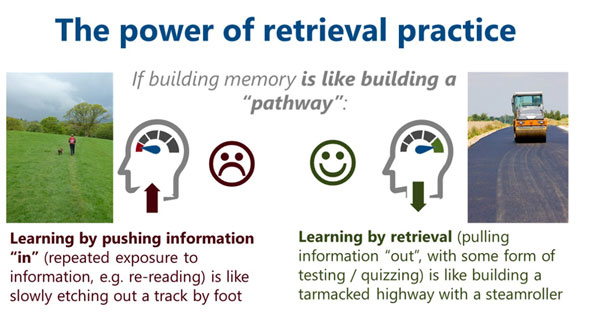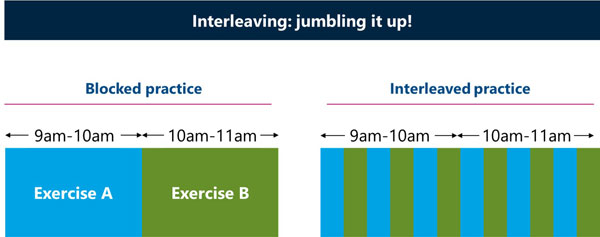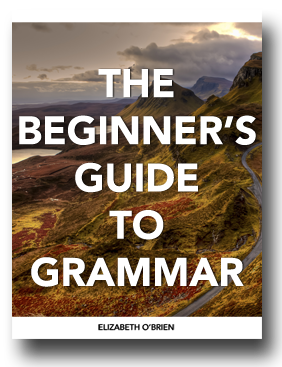Join the Smart Punctuation Challenge! We start February 23.
Grammar Test Preparation: How To Study Grammar Rules
Grammar Test Preparation:
How To Study Grammar Rules
- Home
- Grammar Quizzes
- How To Study
The way that we study (or help our students study) matters, and today I'm joining forces with memory psychologist William Wadsworth, who will share how to unlock the most powerful study methods out there so that your grammar test preparation will be powerful and efficient.
Psst! The methods we'll be discussing don't just relate to studying grammar rules. You can use them to study anything.
William Wadsworth is a memory psychologist and study coach who works with learners of all ages to help them learn faster and ace their exams or excel in their careers. He was kind enough to write the following guest post for us. Thank you, William!
Grammar Test Preparation: How To Study So That You Remember What You Study Forever
English Grammar Revolution can give you a superb grounding in English grammar. But what can you do to make sure you actually remember all that you’re learning? How can you remember all those grammar rules so that you have the confidence to use your knowledge when you need it?
Read on for a memory psychologist’s top tips and tricks for building your “grammar memory!”
The Most Powerful Memorization Strategy Known To Psychology
If you only ever know one thing about the science of how your memory works, it’s this: The real learning happens when you try to remember what you know (test yourself in some way) not when you read or watch content over and over again.
Let me explain.
Many people instinctively feel that learning is all about pushing knowledge IN to your memory, e.g. by reading a blog article, watching a video, listening to something. And it’s absolutely true that we need to start with the “pushing in” phase.
But if that’s all we do, your memory is likely to fade quickly—no matter how many times you reread or rewatch.
The solution is something known to psychologists as retrieval practice: practicing bringing information back to mind from your memory, or to put simply, testing yourself! (Learn more about retrieval practice on William's site here.)
Testing yourself isn’t just about checking whether you know it or not.
It’s the fastest process by which real, lasting learning happens, and it's the answer to remembering all those grammar rules for good.
 Retrieval practice is the fastest process by which real, lasting learning happens.
Retrieval practice is the fastest process by which real, lasting learning happens.Putting It Into Practice
So, how can you put retrieval practice into action so that you can maximize your grammar test preparation efforts?
Here are 3 good ideas:
- Heard or read something interesting?
Close your eyes and try to recall what you heard or read, before doing anything else. For example, if I watched Elizabeth’s video on helping verbs – the first thing I’d do after watching it if I wanted to actually remember it, would be to pause what I was doing and sing the song back to myself! - Use quizzes and exercises.
Remember that quizzes aren’t just about testing whether you know something or not. They’re a fabulous way to actually learn. Try to switch from reading about the rules to doing exercises ASAP; you’ll learn faster and remember more that way. English Grammar Revolution’s Get Smart Grammar Program is full of exercises and tests that can help you do plenty of retrieval practice and really master the concepts you’re learning. - Use your knowledge in everyday life!
Be mindful about your use of grammar as you’re writing. Look out for language on signs, adverts and notices when you’re out and about, and try to identify concepts that you’ve been learning about. (Bonus points if you spot a mistake!)
If you’re doing a lot of studying (not necessarily just grammar), you could even consider keeping a weekly or daily “memory journal.” Spend a few minutes each week, or each day, recalling the key things you learned since you last journaled. Your memory will be transformed.
Going A Step Further: Interleaving
One slightly more advanced learning strategy I’d love to share is called interleaving (another fancy psychology term, but it’s actually pretty straightforward in practice). (Learn more about interleaving on William's website here.)
Interleaving simply means “mixing it up,” so rather than spending a really long block of time only doing one kind of grammar exercise before switching to another long stretch on a second type of exercise, you switch between the two.
You know the feeling after you’ve done the first few questions of the same type, and you feel you’re “getting into the zone” with the exercise? Subsequent questions feel increasingly easy. That can be great for building confidence, but the problem is, if you ever need to use that skill in the real world it might suddenly feel harder again, because you haven’t just had a run of similar questions to “warm up” on.
You want to train your grammar brain to swing into action from the very first time you see a situation that needs you to use your knowledge of that particular grammar skill.
The way to do that is simple: interleaved practice. Choose two distinct exercises and start by tackling a couple of questions from the first exercise, before switching to a couple of questions from the second exercise. Continue switching back and forth—one or two questions from Exercise A and one or two from Exercise B.
 Switch between exercises often.
Switch between exercises often.It will feel harder than working through one whole exercise at a time, but that’s the point.
Interleaving is a bit like high-altitude training for your grammar memory: you’re adding a level of challenge in your practice that builds a stronger memory, making it feel much easier when you actually need to use your skills for real.
For best results, choose two related skills for interleaving that could get confused—interleaving your practice of those two skills will help you learn the differences and avoid getting confused.
English Grammar Revolution’s grammar quizzes are for interleaved grammar practice of several different kinds of grammar skills.
Have fun with memorizing your grammar rules and becoming a grammar master!

By William Wadsworth, Memory Psychologist at ExamStudyExpert.com
Thank you, William! Now, we all know how to best use our study time for best grammar test preparation results. If you'd like to learn more about how William can help you learn, check out his "Science of Studying" cheat sheet.
This is original content from https://www.english-grammar-revolution.com/grammar-test-preparation.html

Hello! I'm Elizabeth O'Brien, and my goal is to get you jazzed about grammar.
Our Free Guide Gives You A Fun Way
To Teach And Learn The Basics v

Elizabeth O'Brien is the creator of Grammar Revolution.
Her lessons are guaranteed to give you more confidence in your communication skills and make you smile. :)
